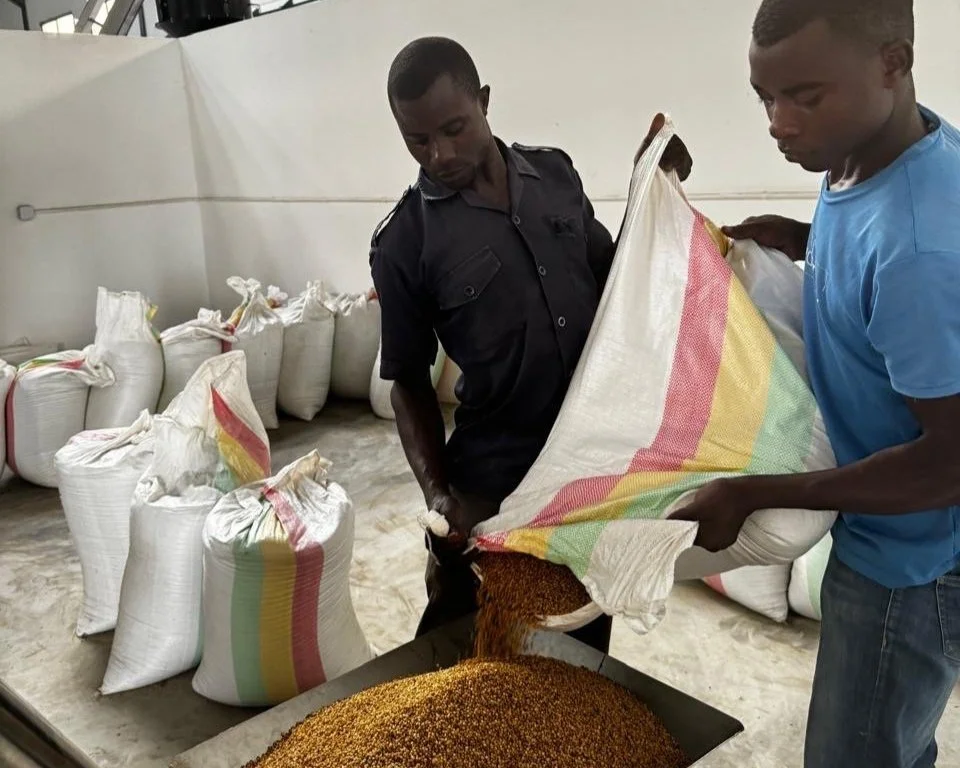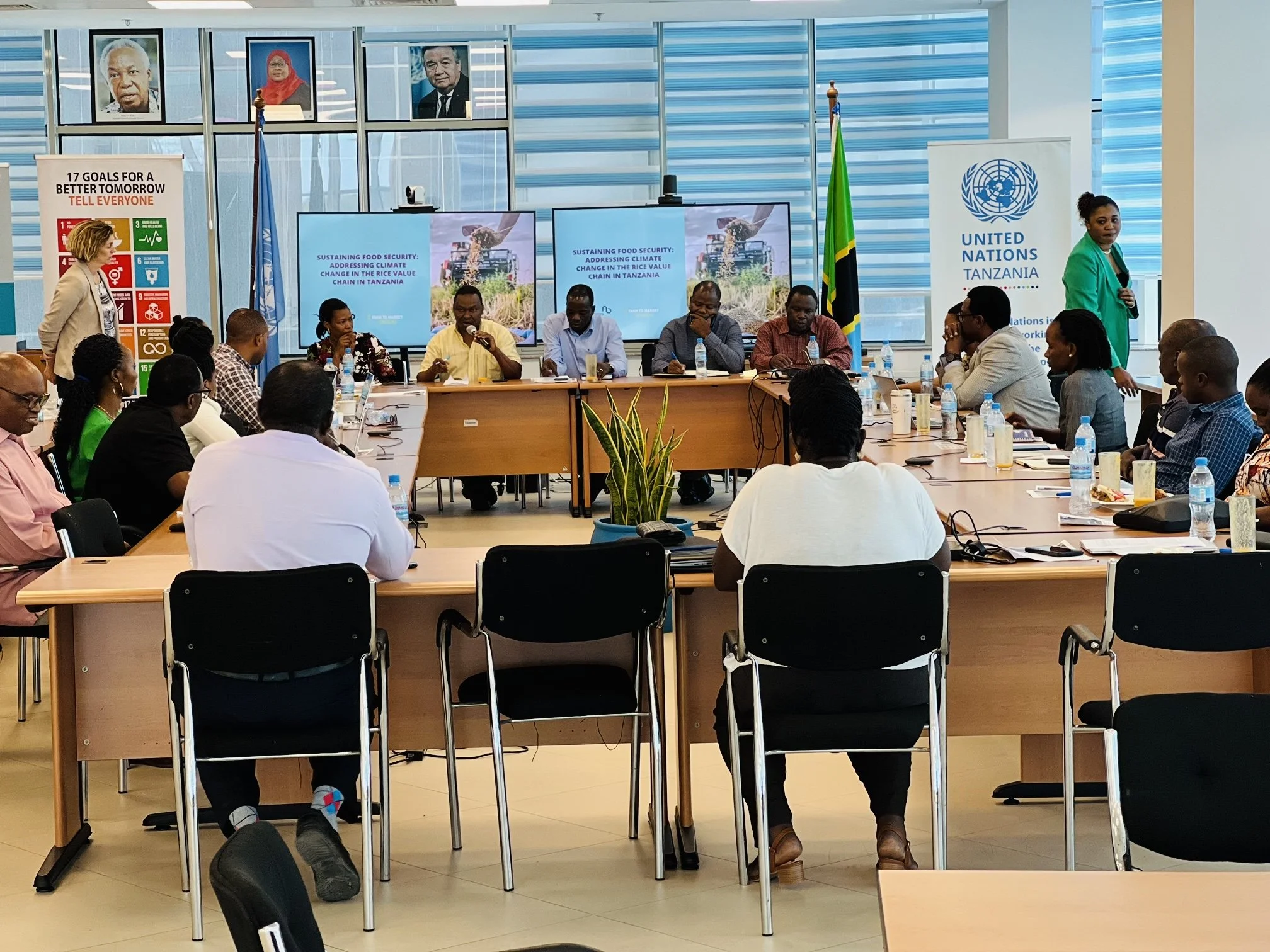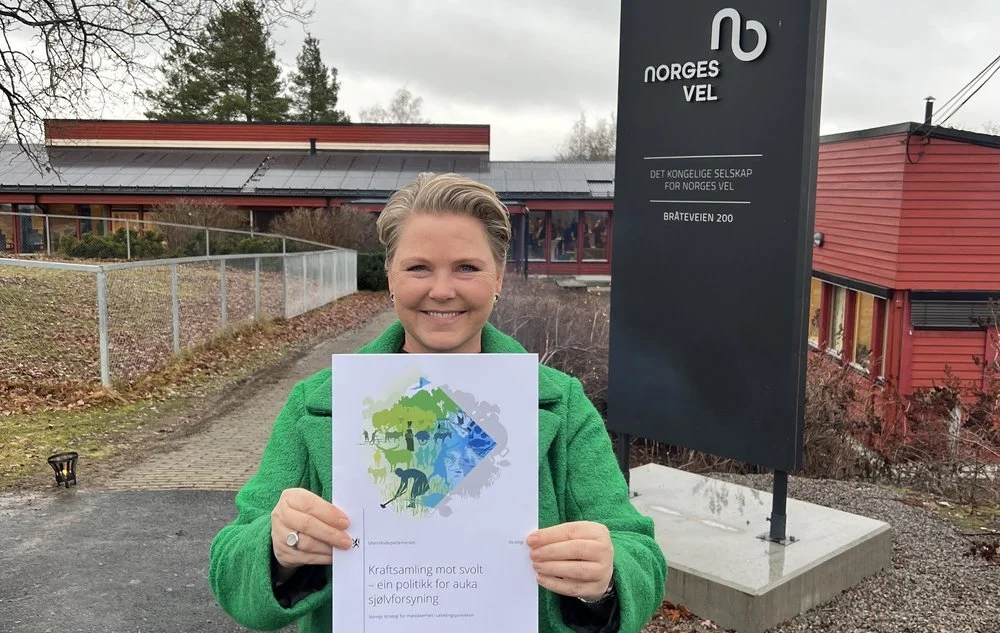Since the election in Mozambique in October 2024, the country has been marked by violence and instability. Despite this, our dedicated partners and employees have found solutions that enable us to continue our work in ensuring food security in the region.
Read MoreThere are three exciting opportunities available to join us in making a significant impact on food security in Tanzania.
Read MoreIn collaboration with the Farm to Market Alliance, we organized the event “Sustaining Food Security: Addressing climate change in the rice value chain in Tanzania” on October 27th in Dar es Salaam.
Read MoreIn Tanzania, small-scale farmers account for nearly 70% of the country’s food production, highlighting the crucial role of agriculture in the country’s economy. With rice being one of the staple crops in the country, the rice market serves as a significant source of income for small-scale farmers.
Read MoreThe proportion of young people is rapidly growing across the world, and Tanzania has one of the worlds fastest growing young population. Of the estimated 60 million people in Tanzania, more than 44% of the population is under 15 years old. As agriculture remains a cornerstone of Tanzania’s economy, youth are considered to play a key role in the socio-economic development of Tanzania. But youth often find agriculture unglamorous, old-fashioned, and too hardworking. Most youth see agriculture as traditional subsistence farming, and not a business. We had a chat with Enoch Asulwisue Kasisi, a youth farmer in Mbarali, about his experience with agribusiness.
Read MoreAs a COMRICE participant, Elinesi Mpyanga (54) has focused on seed production, as an MTC stakeholder in production of improved seeds. MTC, The Mbarali and Neighbors Rice Farmers Trading Company is part of COMERICE’s objective to rally farmers together in a farmer-owned company that is facilitating their transition from subsistence farming to commercial business farming.
Read MoreTuesday 29th of November, the Minister of Agriculture and Food Sandra Borch, other politicians, and employees in the industry were gathered at Hellerud Gård for the launch of Norway’s new strategy to combat hunger and enhance global food security - "Kraftsamling mot svolt – ein politikk for auka sjølvforsyning".
Read MoreIn 1997, Shukuru Abdallah and her husband began growing rice to feed their young family in Uhambule village, Mbarali, southern Tanzania. Her husband was originally a maize farmer, but Shukuru convinced him to borrow two acres of land to grow rice and beans to vary their diet and sell the surplus for a profit.
Read MoreThe effects of climate change in Mbarali have hurt small-scale farmers the most. With a population heavily dependent on rain for agriculture, drastic changes in rainfall patterns have translated into life-altering productivity and income losses. Farmers say they used to be able to forecast the rainy season reliably; less so over the past 10 to 20 years.
Read More“There is a saying among the Macua people inNorthern Mozambique , that ‘’a single hand is never strong’’, hence the need to join them together to have more strength. Farmers, when joining cooperatives, find, says Natalino Barnete, Programme Manager in AMPCM”.
Read MoreIt was a clear speech by a female small-scale farmer from the Mtu kazi group. The question was why, unlike most of their neighbours, they had made the choice to become shareholders in MTC.
Read MoreThe involvement of women in our projects is of course about equal rights, but we want to first and foremost tell the story that it pays off, says Reinaart Pretorius, director for international development for Norges Vel’s international work.
Read MoreIn 2019, with support from Norad (The Norwegian Agency for Development Cooperation), the Royal Norwegian Society for Development began a project to produce a preventative product called AflaSafe in Mozambique.
Read MoreThe financing and organisation of small farmers into profitable, farmer-owned co-operatives will contribute both to the fight against hunger and to climate-friendly food production.
Read MoreThrough Norges Vel's COMRICE project, Tanzanian women gain increased ownership and control over their own businesses. More professional rice production provides both food and a profit that contributes to the family income.
Read More














